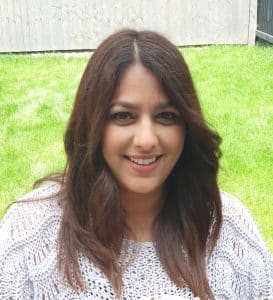What attracted you to become a counsellor/therapist?
Counselling was a career I gravitated to over time. You will find many counsellors tend to have a lot of life experience behind them and counselling is a second career option.
I initially worked for a number of local authorities, and whilst I enjoyed these roles, I recognised I was naturally drawn to listening to people and wanting to understand them. I had a strong urge to want to support more than just service users. I felt I was much more aware of my colleagues, clients and my own emotional and mental state. As a result, this made me look into how we as people cope and often sometimes struggle with our emotional and mental wellbeing in the workplace, in social and personal situations.
Eventually, I took the decision to change career and studied to become a counsellor. I now work as an Integrative Therapist, specifically in the area of domestic, sexual abuse and trauma. I find this area of work rewarding and I am inspired by the incredible coping mechanisms and resilience we can bring out in ourselves when required. When I hear of situations that people are going through I now feel that I have the skills to help facilitate the process of helping them establish safety and feel empowered.
What is stress?
Stress can be different for everyone, but essentially it is the feeling of being overwhelmed. People can describe the feeling as not being able to cope emotionally or physically with pressure. You can have the sense of not being in control or manage a situation. The key is being stress-aware, sometimes people do not realise they are actually stressed.
What are some of the leading causes of stress?
Anxiety or depression causes stress, however, this can be triggered by a number of factors such as; bereavement, losing a job, money problems, divorce or separation. Work-related stress can also be a factor, and it is said that on average people lose 24 days of work due to ill health.
Many people are impacted by constantly being exposed to fear, like the recent Covid pandemic and scenes/news of war. If you combined this with a person’s lack of ability to help change the situation the feeling of helplessness can overcome the person. Constant exposure and discussions of these situations of fear can trigger survival brain responses. The responses cause your body and nervous system to react physically rather than responding from a calm, grounded place.
What can stress look like?
It usually manifests in changes in behaviour. This can be difficult for people to recognise if they have always been around stressful environments. Even if people have always been around stressful environments, there are always ways to change the situations. So go back to basics and look at your routine of self-care.
Questions you can ask yourself;
Are you sleeping?
Are you eating properly?
Has your choice of food changed to be more unhealthy?
Are you working more?
Do you have a good work-life balance?
Look into what area needs improvement. Explore where the uncomfortable feelings are coming from. Are they emotional or physical? Once you have identified the feelings and explored what is causing the feeling you can make a choice about how you want to address it.
Is a small amount of stress actually good for us? Or is it all negative?
A small amount of anxiety is normal and can keep us safe. For example, if I am slightly anxious about driving safely, I will be more careful, pay attention when driving and be cautious of other drivers by keeping a safe distance.
If I am not anxious at all and careless, I might be reckless in my driving and cause an accident. On the other hand, if I am too anxious, I might not be able to drive at all, or drive dangerously/too slow causing an accident.
Therefore, it’s normal for all of us to feel some anxiety or stress on a daily basis. It is a survival instinct and helps to keep us safe. Stress becomes a concern when the anxiety and stress starts to have a physical and or mental impact on you, affecting your thoughts and feelings to the point where it is limiting your day-to-day functioning in tasks, self-care, relationships etc.
Stress Awareness Month with Sabrina Khan Part 2






















